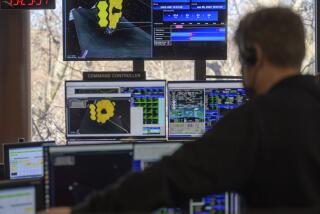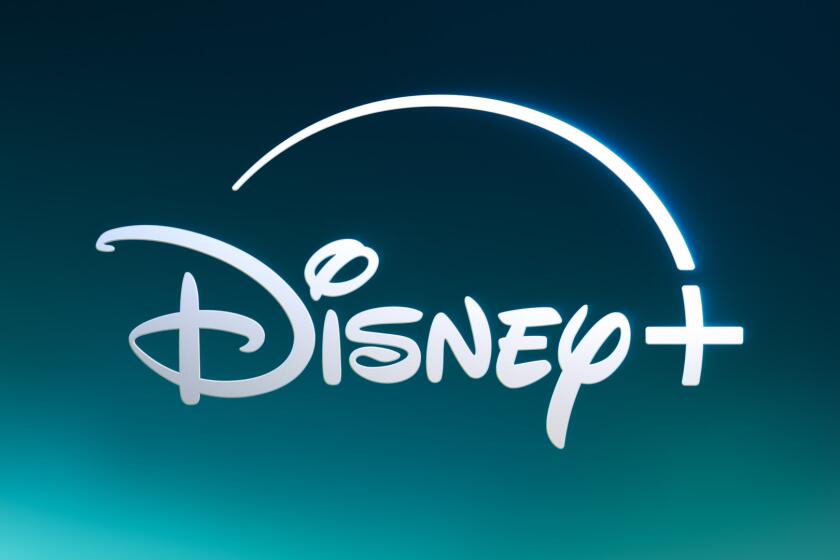Industry Eyes Now on Northrop
- Share via
It seems like deja vu all over again for Northrop Grumman Corp.
Less than three years ago, the Los Angeles-based aerospace concern had to decide whether to eat or be eaten as U.S. defense contractors began rapidly gobbling up their rivals to survive the post-Cold War era. The company chose to eat--buying Grumman Corp. for $2.2 billion in mid-1994.
Now, with the industry’s shakeout heading into its final phase--and accelerated by Boeing Co.’s blockbuster plan announced Sunday to buy McDonnell Douglas Corp.--aerospace watchers are speculating that Northrop Grumman could again be involved in a big merger.
Their thinking goes like this: The industry’s consolidation will result in only three or four giant contractors in the 21st Century--much like the Big Three U.S. auto makers. Two of those giants have already been formed: Lockheed Martin Corp. and the new Boeing-McDonnell entity.
That leaves room for at least one more, and speculation centers on the prospect of one or more mergers involving not only Northrop Grumman, but also Raytheon Co., the defense operations of Los Angeles-based Hughes Electronics Corp. and Texas Instruments Inc., and perhaps Woodland Hills-based Litton Industries Inc.
Not everyone subscribes to the idea that Northrop Grumman--which expects to post sales of about $8 billion this year--must eat or be eaten to survive. That’s because, unlike in 1994, Northrop Grumman is now a much bigger, more diversified company that’s much less reliant on shrinking aircraft programs, analysts said.
“I don’t know that there’s a necessity [for Northrop] to do anything,” said Paul Nisbet, president of the aerospace consulting firm JSA Research Inc. in Newport, R.I.
Northrop Grumman is one of California’s biggest aerospace employers, with more than 15,000 workers in the state. The company builds the B-2 Stealth bomber in Palmdale and Pico Rivera, and produces about 40% of McDonnell’s F/A-18 fighter jet at its plant in El Segundo.
The company also makes major pieces of jetliners--including Boeing 747 fuselages in Hawthorne--and produces the tail section and other structures for McDonnell’s C-17 military cargo plane. Northrop Grumman also makes the JSTARS and E-2C surveillance aircraft for the military, and a variety of defense-electronics systems.
The company, as a matter of policy, declined to comment Tuesday on any merger plans. But there are some reasons to suggest that Northrop Grumman might be mulling a merger, analysts said.
For instance, Northrop Grumman was on the team led by McDonnell that recently lost the competition to develop the next-generation U.S. fighter jet, the Joint Strike Fighter. The loss was seen as a key factor in McDonnell’s decision to embrace Boeing’s buyout.
Also, Northrop Grumman’s contract to build the B-2 bomber is running out, as the company nears completion on the 21 planes for the Pentagon.
Boeing’s proposed purchase of McDonnell has also raised speculation that Northrop Grumman’s subcontracting work for Boeing might diminish. With the addition of McDonnell’s Douglas Aircraft plant in Long Beach, Boeing could bring that work back in-house, analysts said.
In addition, Northrop Grumman’s chairman, Kent Kresa, has shown he can be an aggressive suitor. He captured Grumman after waging a hostile takeover battle with Martin Marietta Corp. (which was later bought by Lockheed), and more recently Northrop Grumman bought Westinghouse Electric Corp.’s defense electronics group for $3 billion.
But there also are reasons why Northrop Grumman might not be involved in a big merger. Among them: The company is still digesting the acquisition of Westinghouse’s defense group, which left it with more than $3 billion of debt.
As for someone else buying Northrop Grumman, “I don’t know who’s around any more that could take them over,” now that Lockheed Martin, Boeing and McDonnell are all tied up with their own acquisitions, Nisbet said.
Northrop Grumman’s current market value is about $4.7 billion. Assuming that a buyer would have to pay a premium of 20% and assume the company’s debt, a takeover of Northrop Grumman could cost between $8 billion and $10 billion.
Times staff writer James F. Peltz can be reached via e-mail at james.peltz@latimes.com or by fax at (213) 237-7837.
Thursday: Retailing
More to Read
Inside the business of entertainment
The Wide Shot brings you news, analysis and insights on everything from streaming wars to production — and what it all means for the future.
You may occasionally receive promotional content from the Los Angeles Times.











